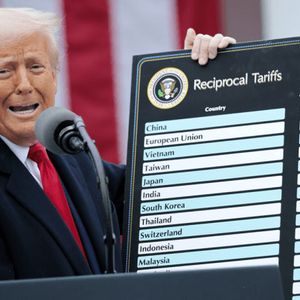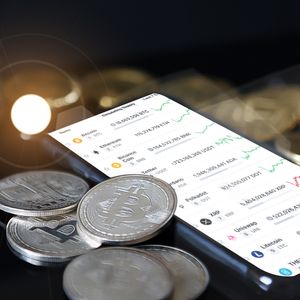Coinlist, a popular token launch platform, is restarting operations in the US market for the first time since 2019. It accompanied the announcement with a token sale coming later this month. The token will be available to US-accredited investors, and it will be Coinist’s first token sale to allow US participants in over five years. The last time the platform conducted a sale was in 2019 with the Kadena token, according to Coinlist president Scott Keto. I'm thrilled to announce that @CoinList is back in the U.S. with a new token sale for accredited investors. We're kicking off with @doublezero , a groundbreaking base layer neutral infrastructure for the next generation of distributed systems and blockchains. The @doublezero … https://t.co/ChLtEQoQk7 pic.twitter.com/fncN3xErsN — raghav (@rargulati) April 2, 2025 Coinlist is back because of the Trump effect Coinlist has been in exile for the past five years, and many are now attributing its return to the US to the current Donald Trump administration’s friendliness towards crypto. “After a difficult chapter in American crypto history, we’re reopening token sales for U.S. accredited investors,” the platform announced via its official X page. “Because when America builds, the entire crypto ecosystem moves forward.” Coinlist was forced to end operations in the US in late 2019 as the US Securities and Exchange Commission (SEC), under the Joe Biden administration, ramped up enforcement in moves many in the crypto sector have tagged overly aggressive. “The perceived risk of enforcement and its associated costs radically increased during the Biden administration,” Keto said. Keto added that many projects and companies were following the rules back then, but that didn’t stop the SEC, which was on the warpath, from leveling “unreasonable enforcement actions” against them. The new SEC leadership installed by the Trump administration has dismissed many of them already this year. Trump installed David Sacks as his AI and crypto czar. He also replaced former SEC head Gary Gensler with interim chair Mark Uyeda and nominated Paul Atkins for the permanent role. So far, under Trump’s administration, the SEC has dropped multiple lawsuits, including against Coinbase, Kraken, and Ripple. According to Keto, many projects aiming for community-centric token sales between 2020 and 2024 — such as Solana, Near and Ondo — had to leave US participants out due to the stifling political and regulatory climate. The crypto market (Bitcoin excluded) surged 18x during that time, moving from $60 billion to $1.15 trillion. However, US investors missed out as they were largely sidelined from early-stage participation. Keto is one of those who believe the Trump administration wants America to lead innovation in crypto and has praised the current White House for its approach. “We are close to passing a stablecoin bill here in the U.S. and in conjunction or shortly thereafter, we expect a new version of the market infrastructure bill,” he said. “This will bring a lot of regulatory clarity to the industry and I think likely to open up the markets to both founders and investors here in the U.S. It’s time to bring it back.” Coinlist expects more token sales in the future Coinlist’s CEO has been active on X since the announcement of the platform’s return. He shared details about the new token Coinlist is offering, tagging a post from its official X page, which claimed that “the next wave of U.S. public token sales starts now.” The token will be available to US-accredited investors, and it will be Coinist’s first token sale to allow US participants in over five years. The last time the platform conducted a sale was in 2019 with the Kadena token, according to Coinlist president Scott Keto. Coinlist and community fundraising platforms like Echo and Legion have been gaining traction recently as they’ve been helping projects raise capital. Unfortunately, one report claims the surge of these community fundraising platforms is reportedly creating friction with some VCs. Consider Echo, an angel investing platform founded by popular crypto trader Jordan Fish, aka Cobie. There are claims certain VCs are not happy about Echo’s success and have been pressuring crypto projects not to offer their investors lower prices or discouraging community sales altogether, except for late-stage, high-valuation rounds. Matt O’Connor, co-founder of Legion, the Delphi Labs-incubated ICO platform, has said Legion hasn’t seen much outright hostility, but some VCs have pushed projects to avoid public sales due to regulatory risks while advising against discounted valuations and shorter vesting periods. “To me, the vesting part is particularly ironic because if the team airdrops tokens as unlocked, VCs don’t complain, but when teams sell a smaller portion unlocked, it’s somehow a problem,” O’Connor said. Some VC-backed projects, such as MegaLabs and Initia, have had successful community launches. However, other teams, especially those that raised funding from VCs over 3–6 months ago, have said that their investors didn’t support similar discounts, he added. Cobie and O’Connor did not name the VCs that were resisting their platforms. However, Cobie said, “The general thing we see is that Echo secures some allocation in some round, and then we get ghosted, and then the same project says their VC recommended 3-5x higher valuation for Echo. Then we typically just tell them to f**k off.” He said that some VCs would even try to “block” an already agreed Echo round price if the price is below the price they paid. “Anyway, they seem pretty unhappy about it,” he said. Shuyao Kong, co-founder of MegaETH developer MegaLabs, which raised $10 million in 3 minutes on Echo, also said that she has heard of projects being resisted by VCs on discounted valuations for Echo investors, confirming the incidents are not isolated. Now that Coinlist is back and teasing future token sales for US investors, the rift between VCs and platforms like Echo may be something to watch. Cryptopolitan Academy: Want to grow your money in 2025? Learn how to do it with DeFi in our upcoming webclass. Save Your Spot















